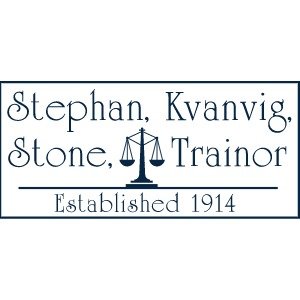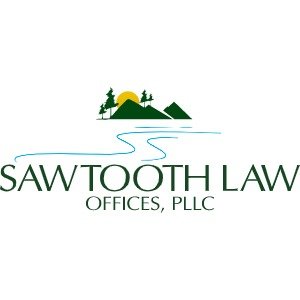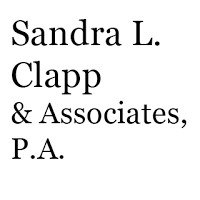Best Nonprofit & Charitable Organizations Lawyers in Idaho
Share your needs with us, get contacted by law firms.
Free. Takes 2 min.
Or refine your search by selecting a city:
List of the best lawyers in Idaho, United States
About Nonprofit & Charitable Organizations Law in Idaho, United States
Nonprofit and charitable organizations play a crucial role in Idaho, serving the public through education, religious, social, environmental, health, and other charitable missions. These organizations are generally formed to support a cause or community benefit and operate under a unique set of federal and state laws. In Idaho, nonprofits can be organized as corporations, trusts, or associations, and must abide by both federal tax laws and specific Idaho state regulations to maintain their nonprofit status. These laws govern everything from how the organization is formed, how it manages its finances, its governance structure, fundraising practices, and dissolution processes.
Why You May Need a Lawyer
Legal counsel can be invaluable when navigating the complex landscape of nonprofit and charitable organization law in Idaho. Common situations where legal advice may be necessary include:
- Choosing the correct organizational structure for your nonprofit
- Drafting and reviewing articles of incorporation and bylaws
- Applying for and maintaining federal tax-exempt status (IRS 501(c) recognition)
- Complying with state and local registration, reporting, and compliance requirements
- Handling employment and volunteer agreements
- Ensuring lawful fundraising and donor solicitation practices
- Resolving internal disputes among directors, officers, or members
- Addressing risk management, insurance, and liability issues
- Managing mergers, affiliations, or dissolution of the organization
- Responding to IRS or state audits and investigations
Due to the significant legal implications and the importance of compliance, consulting a knowledgeable attorney is recommended for both new nonprofits and established organizations facing legal challenges.
Local Laws Overview
Idaho has several statutes and regulations specifically governing nonprofit and charitable organizations. The Idaho Nonprofit Corporation Act (Title 30, Chapter 30 of the Idaho Code) is the foundational law outlining formation, governance, and dissolution requirements for nonprofit corporations. Key highlights include:
- Nonprofits must file Articles of Incorporation with the Idaho Secretary of State and maintain a registered agent in the state.
- The organization must comply with bylaws that set forth governance procedures and conduct regular meetings of the board and members, as required.
- Nonprofits conducting charitable solicitations in Idaho may be required to register with the Idaho Attorney General's Office, which oversees charitable organizations to ensure accountability and prevent fraud.
- There are state tax requirements to consider, separate from federal IRS exemption. Some Idaho taxes, like sales and use taxes, may apply depending on the organization’s activity.
- Annual report filings with the Secretary of State may be mandatory to maintain active nonprofit status.
Nonprofits must also comply with federal regulations, such as applying for IRS tax-exempt status and adhering to the requirements for maintaining that status, including restrictions on political activity and private inurement.
Frequently Asked Questions
What are the steps to start a nonprofit organization in Idaho?
Generally, you will need to choose a name, draft and file Articles of Incorporation with the Idaho Secretary of State, create bylaws, hold organizational meetings, obtain an Employer Identification Number (EIN) from the IRS, and apply for federal and state tax exemptions.
Do all Idaho nonprofits need to register with the Attorney General?
Charitable organizations that solicit contributions from the public often must register with the Idaho Attorney General’s Charitable Assets Section. Some religious organizations may be exempt.
When is IRS 501(c)(3) status required?
IRS 501(c)(3) status is required if your organization wants to receive tax-deductible donations and certain grants. It is not automatically granted by forming in Idaho; you must apply separately with the IRS.
Does a nonprofit in Idaho automatically get federal tax exemption?
No, you must apply to the IRS for recognition of tax-exempt status-most commonly under Section 501(c)(3) for charitable organizations.
Are Idaho nonprofits exempt from state taxes?
Some state tax exemptions may be available, but they are not automatic. For example, Idaho nonprofits may need to apply for state sales tax exemption.
What governance rules apply to Idaho nonprofits?
Nonprofits are governed by their Articles of Incorporation, bylaws, and the Idaho Nonprofit Corporation Act. Requirements include having a board of directors, regular meetings, and proper record-keeping.
Can Idaho nonprofits pay their directors or officers?
Directors can be compensated for actual services, but nonprofits must avoid conflicts of interest and ensure compensation is reasonable. Excessive payments could jeopardize tax-exempt status.
What happens if an Idaho nonprofit is dissolved?
Upon dissolution, assets must be distributed in accordance with Idaho law and the nonprofit’s governing documents, typically to another nonprofit or a governmental body.
Are there special fundraising rules in Idaho?
Yes. There are laws regarding charitable solicitations, registration requirements, and disclosure to donors. Fundraising activities must be compliant with both state and federal regulations.
What records must an Idaho nonprofit keep?
Nonprofits should maintain records including meeting minutes, financial statements, filings with the state and IRS, donor information, and correspondence related to compliance.
Additional Resources
Several governmental bodies and organizations can assist those involved with Idaho nonprofit and charitable organizations:
- Idaho Secretary of State - Business and Nonprofit Services Division: Handles incorporations and annual filing requirements.
- Office of the Idaho Attorney General - Charitable Assets Section: Oversees charitable organizations and investigates alleged wrongdoing.
- Internal Revenue Service (IRS) - Exempt Organizations Division: Provides federal tax guidance and processes IRS exemption applications.
- Idaho Nonprofit Center: Offers education, resources, and advocacy for Idaho nonprofits.
- Idaho State Tax Commission: Provides information on state tax exemptions and requirements.
Next Steps
If you are seeking legal assistance for a nonprofit or charitable organization in Idaho, consider the following steps:
- Gather all relevant information about your organization, such as governing documents, state filings, IRS correspondence, and any questions you have.
- Consult with an attorney who specializes in nonprofit and charitable organization law in Idaho. They can help you navigate local statutes, draft documents, and ensure compliance at both the state and federal level.
- If you are just getting started, reach out to the Idaho Secretary of State and the Idaho Nonprofit Center for initial guidance and resources.
- For specific tax-related questions, contact the Idaho State Tax Commission or the IRS.
- Stay informed about ongoing compliance by subscribing to updates from the Idaho Nonprofit Center and regularly reviewing your obligations with your legal counsel.
By being proactive and seeking professional advice, you can help your nonprofit not only remain compliant but also thrive in serving its mission in Idaho.
Lawzana helps you find the best lawyers and law firms in Idaho through a curated and pre-screened list of qualified legal professionals. Our platform offers rankings and detailed profiles of attorneys and law firms, allowing you to compare based on practice areas, including Nonprofit & Charitable Organizations, experience, and client feedback.
Each profile includes a description of the firm's areas of practice, client reviews, team members and partners, year of establishment, spoken languages, office locations, contact information, social media presence, and any published articles or resources. Most firms on our platform speak English and are experienced in both local and international legal matters.
Get a quote from top-rated law firms in Idaho, United States — quickly, securely, and without unnecessary hassle.
Disclaimer:
The information provided on this page is for general informational purposes only and does not constitute legal advice. While we strive to ensure the accuracy and relevance of the content, legal information may change over time, and interpretations of the law can vary. You should always consult with a qualified legal professional for advice specific to your situation.
We disclaim all liability for actions taken or not taken based on the content of this page. If you believe any information is incorrect or outdated, please contact us, and we will review and update it where appropriate.
Browse nonprofit & charitable organizations law firms by city in Idaho
Refine your search by selecting a city.















